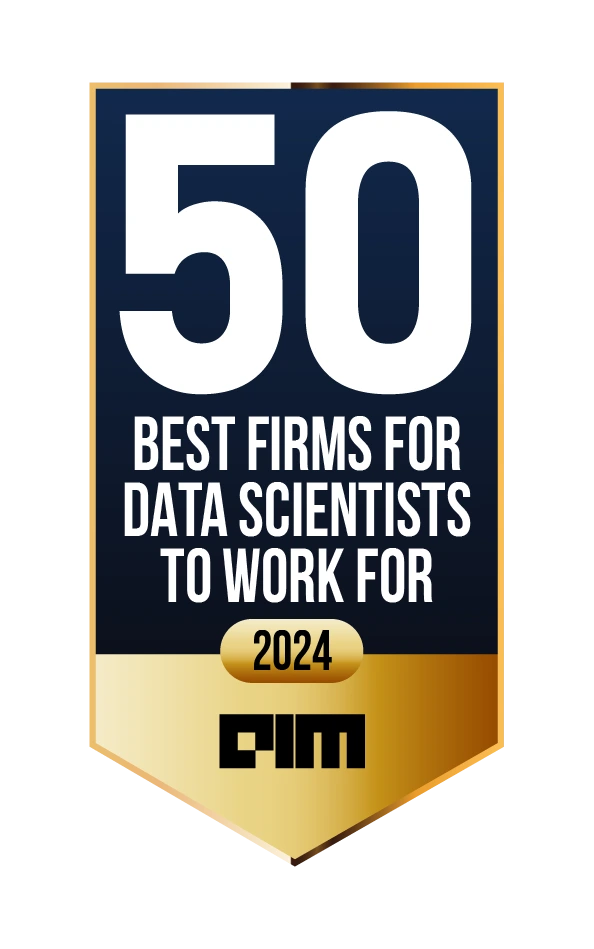The Next Era of Supply Chain Risk Management with AI Intelligence
- Team Aays

- Dec 18, 2024
- 6 min read
Updated: Dec 20, 2024

In an interconnected global economy, supply chain disruptions can ripple through inmbslbskui9edustries, causing significant financial and operational setbacks. AI-driven supply chain risk management is reshaping the way businesses anticipate and respond to these challenges, enabling proactive strategies that safeguard operational continuity. By integrating artificial intelligence (AI) into risk management practices, organisations can navigate uncertainties with precision, streamline processes, and maintain a competitive edge.
Understanding Supply Chain Risk Management
Supply chain risk management refers to identifying, evaluating, and mitigating risks that could disrupt the flow of goods and services. The process aims to prevent financial loss, supply chain disruptions, and reputational damage. Traditional methods often struggle to keep up with the sheer volume of data and the speed required to address disruptions. Hence, integrating AI into risk management in supply chain management becomes a strategic necessity for businesses to thrive in an increasingly uncertain world.
The Importance of Risk Management in Supply Chains
Effective risk management in supply chain management ensures businesses can minimise disruptions and maintain a steady flow of goods, even amid global challenges. Supply chains face various challenges, from global disruptions like pandemics and geopolitical tensions to supplier reliability and demand volatility. These risks can lead to financial losses and customer dissatisfaction, highlighting the critical need for advanced, proactive risk mitigation strategies powered by AI.
Key Risks in Supply Chain Management
Supply chain risks can be broadly categorised into operational, financial, compliance, and environmental risks.
Operational Risks: Disruptions caused by inefficiencies, supplier delays, equipment failures, or unforeseen natural events. These risks affect production, logistics, and overall supply chain performance.
Financial Risks: Financial risks include currency fluctuations, interest rate volatility, and cost fluctuations, all of which affect the profitability, budgets, and financial health of the supply chains.
Compliance Risks: Non-adherence to regulations, trade laws, or industry standards. These risks can lead to legal penalties, reputational damage, or operational shutdowns.
Environmental Risks: Risks arising from climate change, resource scarcity, or regulatory requirements for sustainability. These can disrupt operations, increase costs, or demand significant changes in processes.
Why Traditional Methods Fall Short
Traditional risk management methods are often reactive, relying on past data without adequately accounting for real-time fluctuations. Moreover, they tend to work in silos, resulting in fragmented data that limits visibility across the entire supply chain. This lack of real-time, comprehensive data makes it difficult to accurately predict risks and proactively address them.
How AI Enhances Risk Assessment in Supply Chains
AI-driven tools revolutionize risk assessment in supply chain management by providing advanced capabilities that improve visibility, accuracy, and decision-making.
Predictive Analytics: AI predicts potential disruptions by analyzing historical data, external factors, and market trends. It enables businesses to anticipate risks like supplier delays, demand fluctuations, or transportation bottlenecks.
Real-Time Monitoring: AI continuously monitors supply chain operations, integrating data from IoT devices, GPS trackers, and external sources like weather or geopolitical events. This ensures immediate identification of anomalies or risks.
Proactive Mitigation Strategies: By simulating scenarios, AI helps businesses test the impact of potential risks, enabling them to develop effective contingency plans to minimize disruption.
Comprehensive Risk Scoring: AI helps evaluate risks at multiple levels—supplier, product, geography—using internal and external data sources. Risk scores provide actionable insights for prioritization and decision-making.
AI Applications in Supply Chain Risk Management
AI is transforming supply chain risk management with advanced tools and techniques, offering deeper insights and enabling proactive responses to challenges. Here are some of the most impactful applications of AI in managing supply chain risks:
Anomaly Detection
AI systems analyze data from multiple sources, such as shipment logs, supplier records, and market trends, to detect irregularities. For example, sudden spikes in raw material costs, deviations in delivery schedules, or quality inconsistencies are flagged for investigation. This early warning system allows businesses to address issues promptly, preventing costly disruptions.
Route and Logistics Optimization
AI optimizes logistics by analyzing vast datasets to determine the most efficient routes for transportation. By identifying optimal routes, AI reduces transportation costs and minimises delays, making the supply chain more resilient to disruptions.
Demand Forecasting
Using techniques like machine learning and neural networks, AI provides highly accurate demand forecasts by incorporating diverse variables such as seasonal trends, economic indicators, and customer behavior. AI uses historical and real-time data to predict demand trends accurately, helping businesses avoid overstocking or stockouts. This improved accuracy allows businesses fine-tune production schedules and maintain optimal inventory levels, enhancing the efficiency of the entire supply chain.
Supplier Risk Evaluation
AI can evaluate supplier performance by analysing data on delivery times, quality issues, compliance records, and market conditions. By aggregating and analyzing this data, businesses can rank suppliers based on reliability and risk exposure. This enables strategic decisions about partnerships and diversification, safeguarding supply chain stability.
Inventory Management
AI optimises inventory levels by analysing demand patterns, reducing holding costs, and minimising waste. AI-driven inventory management ensures that the right amount of stock is available at the right time, preventing disruptions and improving cost efficiency.
Compliance Monitoring
AI tools monitor compliance with trade regulations, safety standards, and environmental policies by scanning contracts, shipment documents, and regulatory updates. By automating compliance checks, AI reduces the likelihood of legal penalties and ensures alignment with global standards.
Benefits of AI in Supply Chain Risk Management
The integration of AI in supply chain risk management offers numerous benefits, including enhanced efficiency, cost reduction, and improved decision-making. AI-driven insights allow businesses to anticipate and respond to risks proactively, reducing downtime and ensuring continuity. Additionally, AI enables companies to optimise operations and make data-driven decisions, ultimately providing a competitive advantage in a volatile market.
Future Trends: AI in Supply Chain Risk Management
AI is reshaping supply chain risk management, and its evolution promises transformative changes in the years to come. Here are key trends to watch:
AI-Driven End-to-End Visibility
Supply chains will leverage advanced AI tools to create unified views of operations, breaking down data silos across suppliers, logistics, and inventory systems.
Integration of Generative AI for Scenario Planning
Generative AI will simplify complex decision making and enable businesses to simulate complex "what-if" scenarios, allowing for better preparedness against unlikely yet impactful risks.
IoT and AI Integration
The combination of Internet of Things (IoT) devices and AI will provide granular, real-time data from across the supply chain. AI systems will analyze this data to predict equipment failures, optimize routes, and detect anomalies, reducing operational risks.
Sustainability-Driven Risk Management
AI will support ESG (Environmental, Social, and Governance) compliance by analyzing supply chain activities for environmental risks. Tools will suggest sustainable sourcing options and monitor carbon emissions.
Autonomous Supply Chain Operations
The rise of autonomous AI systems will see supply chains operating with minimal human intervention. These systems will manage risks such as dynamic rerouting during disruptions, inventory optimization, and demand fluctuations independently.
What Does the AI-Powered Future of Supply Chains Look Like?
The future of supply chains will be characterised by AI-powered tools that bring increased intelligence, automation, and data-driven decision-making. AI-driven solutions will allow for real-time visibility, predictive analytics, and adaptive planning, resulting in more resilient and agile supply chains. As AI continues to advance, the roles within supply chain management will also evolve, with professionals focusing more on strategic decision-making while AI handles routine tasks and predictive insights.
Strategic Importance of AI in Supply Chains: Insights from Aays
Aays specializes in providing highly customized, business-first AI solutions designed for large, complex enterprises. By integrating AI and ML into risk management processes, Aays helps senior business leaders proactively manage disruptions, and enhance supply chain efficiency. Our solutions offer businesses the tools they need to navigate the complexities of modern supply chains. Our expertise in supply chain risk modeling, information synthesis, and retrieval-augmented AI has delivered transformative outcomes for clients, including:
Enhanced supply chain resiliency through risk detection and mitigation.
Optimized inventory levels, reducing holding costs by over 20%.
Advanced co-pilot solutions for supply chain teams, increasing decision speed and accuracy.
Our proprietary accelerators reduce time-to-market by 75%, ensuring our clients achieve maximum value from their AI investments.
Frequently Asked Questions
What is the role of AI in supply chain risk management?
AI plays a crucial role in supply chain risk management by providing predictive analytics, real-time monitoring, and anomaly detection, which help identify potential risks before they disrupt supply chain operations.
Why is risk management crucial in supply chains?
Risk management in supply chain management is crucial to ensure the continuity of goods and services, reduce potential losses, and maintain customer satisfaction, even amid disruptions and uncertainties.
What are the key risks in supply chain management?
Key risks in supply chain management include operational inefficiencies, financial volatility, regulatory compliance issues, and environmental disruptions, all of which can significantly impact the flow of goods and services.
Why do traditional risk management methods fall short?
Traditional risk management methods fall short because they are often reactive, lack real-time insights, and operate in data silos, limiting their ability to proactively address and mitigate risks.









Comments